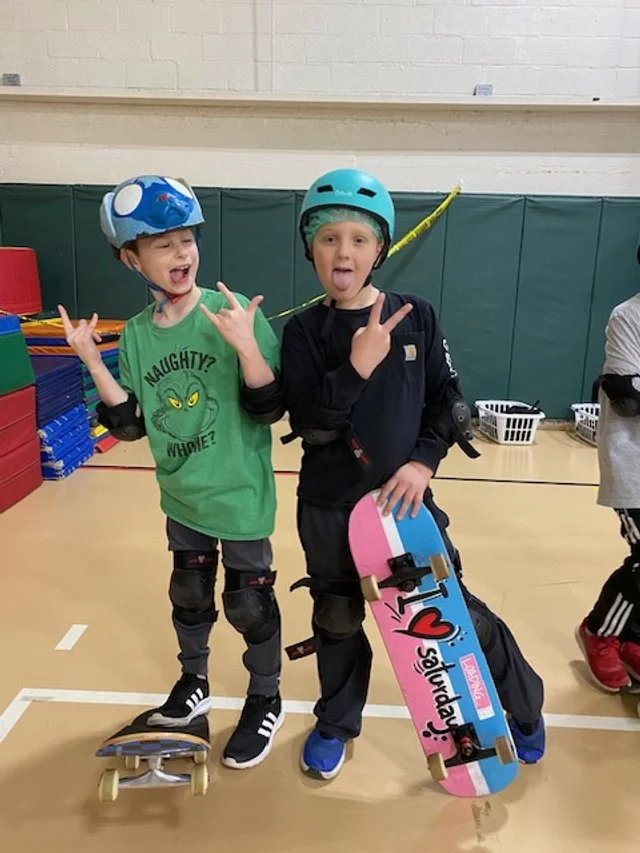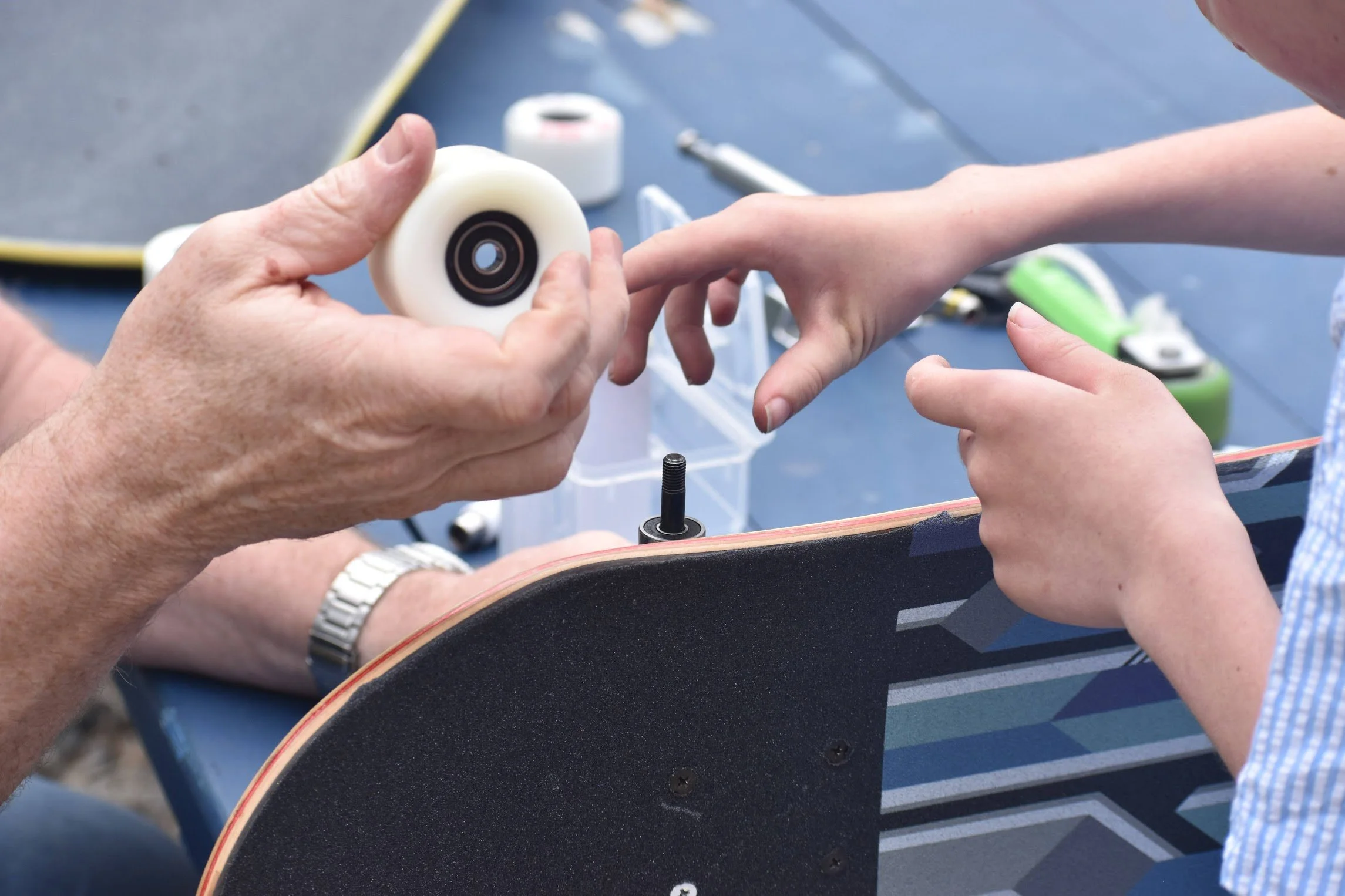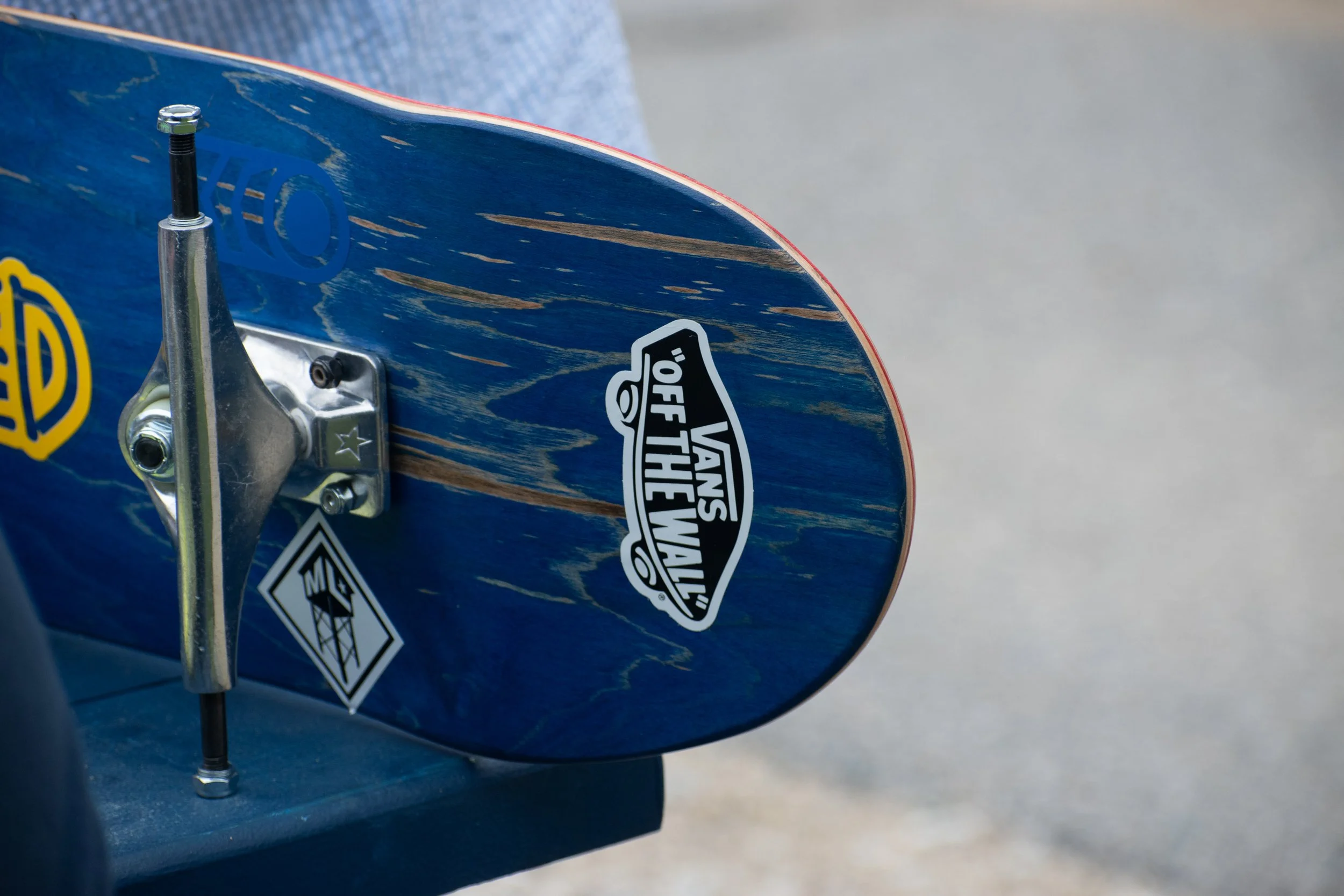
A Conversation with Neftalie Williams
We recently had the chance to sit down with Dr. Neftalie Williams, and it was one of those conversations that reminds you just how powerful skateboarding can be when it’s connected to education and community. If you don’t already know Neftalie, his work stretches far beyond what most people expect from someone rooted in skate culture, while still staying deeply connected to it.

A Year of Building: How First Push Syndicate Expanded Access, Training, and Connection in 2025
There are years where you simply “get through”… and then there are years where you build. This past year was a building year for First Push Syndicate, the kind that quietly lays foundations, strengthens systems, and expands access in ways that will ripple through schools and communities for years to come. From the outside, it may look like “new programs” and “new tools.” From the inside, it felt like belief turning into infrastructure.

Skateboarding in 2025: Culture, Community, and Capital
Skateboarding has always been more than just a sport; it’s a way of life. I grew up spending hours at my local skate shop, sharing stories with friends, talking about the pros, and watching skating videos that made you want to be outside until the streetlights came on. Those shops weren’t just stores; they were community hubs where culture, creativity, and camaraderie thrived. Every board, every sticker, every demo carried the energy of the streets, and you could feel it in the people around you.

What Happens When We Let Students Explore? Rethinking PE Through Skateboarding
As physical educators, we often lean on structured activities and pre-set lesson plans to manage time, ensure safety, and deliver clear outcomes. But what if we took a step back? What if, within a supportive class culture and clear safety boundaries, we allowed students to explore and create their own movement experiences, especially with something as open-ended and expressive as skateboarding?

Is Skateboarding the Fountain of Youth?
When you picture a skateboarder, who do you see? A teenager flying through the air at the skatepark? A twenty-something bombing hills and filming clips? While that image still holds true, a new wave of skaters is redefining the scene—many of them well into their 50s, 60s, and even 70s. In fact, more adults are picking up skateboarding later in life than ever before, finding joy, community, and health benefits along the way.

Skateboarding Builds Confidence, Community, and a Path Forward – Just Ask Josh Pu
In a heartwarming feature by journalist Lisa Moreno (2025), we meet Josh Pu, a Palo Alto skater and teacher using skateboarding to build confidence, community, and new opportunities for local youth. Since October 2024, Pu has offered free weekly skateboarding lessons, welcoming children of all abilities to move, laugh, fall, get back up, and most importantly, believe in themselves.

Integrating Skateboarding into Education: A Review of Juniper School’s Program and Its Connection to the Get On Board Initiative
The integration of skateboarding into educational settings, as demonstrated by the Juniper School program, reflects a growing recognition of the sport’s value in promoting both physical and social-emotional learning. The Get On Board program shares many of the same goals, aiming to provide students with opportunities to develop motor skills, problem-solving abilities, and personal accountability through skateboarding. Both programs show that skateboarding is more than a recreational activity…

